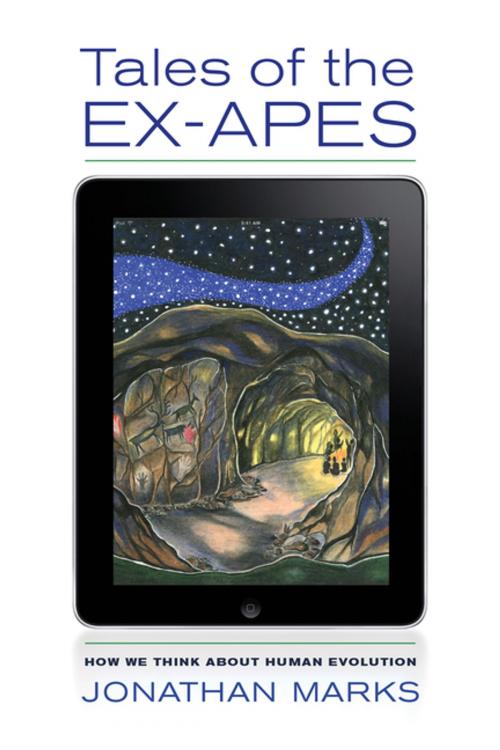Tales of the Ex-Apes
How We Think about Human Evolution
Nonfiction, Social & Cultural Studies, Social Science, Anthropology| Author: | Jonathan Marks | ISBN: | 9780520961197 |
| Publisher: | University of California Press | Publication: | September 8, 2015 |
| Imprint: | University of California Press | Language: | English |
| Author: | Jonathan Marks |
| ISBN: | 9780520961197 |
| Publisher: | University of California Press |
| Publication: | September 8, 2015 |
| Imprint: | University of California Press |
| Language: | English |
What do we think about when we think about human evolution? With his characteristic wit and wisdom, anthropologist Jonathan Marks explores our scientific narrative of human origins—the study of evolution—and examines its cultural elements and theoretical foundations. In the process, he situates human evolution within a general anthropological framework and presents it as a special case of kinship and mythology.
Tales of the Ex-Apes argues that human evolution has incorporated the emergence of social relations and cultural histories that are unprecedented in the apes and thus cannot be reduced to purely biological properties and processes. Marks shows that human evolution has involved the transformation from biological to biocultural evolution. Over tens of thousands of years, new social roles—notably spouse, father, in-laws, and grandparents—have co-evolved with new technologies and symbolic meanings to produce the human species, in the absence of significant biological evolution. We are biocultural creatures, Marks argues, fully comprehensible by recourse to neither our real ape ancestry nor our imaginary cultureless biology.
What do we think about when we think about human evolution? With his characteristic wit and wisdom, anthropologist Jonathan Marks explores our scientific narrative of human origins—the study of evolution—and examines its cultural elements and theoretical foundations. In the process, he situates human evolution within a general anthropological framework and presents it as a special case of kinship and mythology.
Tales of the Ex-Apes argues that human evolution has incorporated the emergence of social relations and cultural histories that are unprecedented in the apes and thus cannot be reduced to purely biological properties and processes. Marks shows that human evolution has involved the transformation from biological to biocultural evolution. Over tens of thousands of years, new social roles—notably spouse, father, in-laws, and grandparents—have co-evolved with new technologies and symbolic meanings to produce the human species, in the absence of significant biological evolution. We are biocultural creatures, Marks argues, fully comprehensible by recourse to neither our real ape ancestry nor our imaginary cultureless biology.















